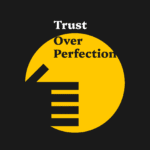Travel and Work — But Don’t Eat
We carried out a project about life in remote parts of Bosnia and Herzegovina — field stories, conversations with people living by rivers, in the mountains, in villages with no signal or asphalt. The project was well designed, the budget decent, but the donor’s rules were absurd.
During three months, we made about ten trips, each 300 kilometers one way. We traveled through rain, snow, and sun, carrying equipment, filming, writing, editing. Then came an explanation from the donor’s office: food and accommodation were not eligible expenses.
They said we could pay for fuel, but not a sandwich or coffee on the road, nor an overnight stay if we couldn’t make it back the same day. So, by their rules, we could go to the field — but without food or sleep.
In the report, we had to list every route, number of kilometers, departure and return times, location photos, signed statements from interviewees, even Google Maps links. For every visit — a separate Excel file, a separate table, a separate confirmation.
By the end of the project, we had more pages of reports than published stories.

The most absurd part was that we had the money in the budget but weren’t allowed to spend it on what we actually needed: a warm meal and a place to sleep.
When it was all over, we sent honest feedback to the donor, hoping they’d change the rules. The reply was brief:
“Thank you for your suggestions, but the procedure remains the same.”
The next time we planned a similar project, we simply said:
“If we can’t eat the bread from our own work — it’s better not to travel.”
